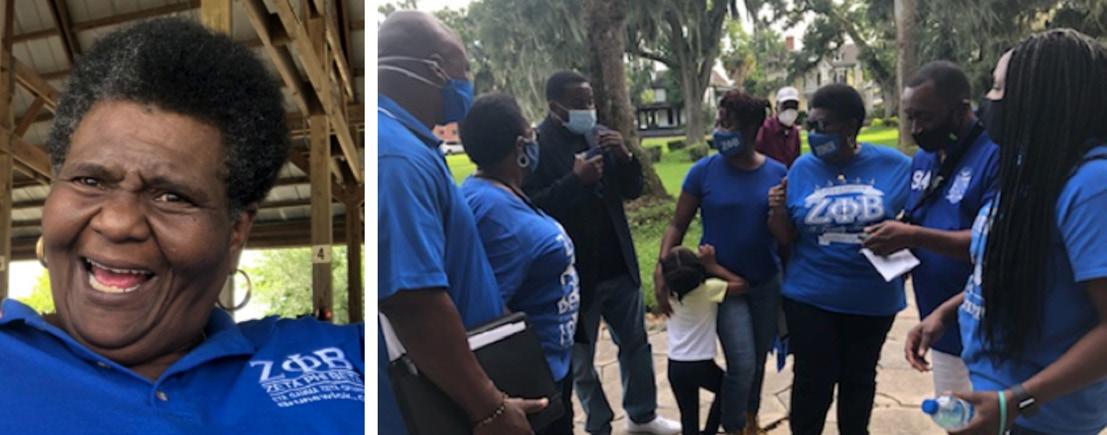
3 minute read
True Support
Eta Gamma Zeta Basileus Darleen Smith embraces a former coworker at the initial community support rally for Ahmaud Arbery.
Ahmaud Arbery Case Spurs Eta Gamma Zeta To Action
Advertisement
By Chriscilia L. Cox
Eta Gamma Zeta
In 2020, cities nationwide marked the 50th anniversary of the March on Washington and celebrated leaders who were soldiers in the crusade for non-violent change. Though the Civil Rights Movement first made national headlines in the 1950s and 1960s, the struggle for racial equality in America continues.
Along Georgia’s coast, in historic Brunswick, the major urban and economic center in the southeast corner of Georgia, local leaders made national headlines in the 1960s by embracing cooperative change early and quickly, making it the “model Southern city.” Its reputation was shaped by national attention and praise decades ago because black and white leaders worked together to integrate with far less acrimony, which boiled over in desegregation efforts in other southern cities. In the 1960s, the racial tyranny of Jim Crow was plain to see, however, nearly half of Brunswick’s residents were Black, which gave them economic power that could not be ignored.
In February 2020, Ahmaud Arbery was jogging in a neighborhood outside Brunswick when white men confronted and shot him. He quickly became a household name after the graphic video of his murder became public. There was anger and anguish and cries of “No justice, no peace!” Nobody would expect something like this to happen in this community. It seemed to shock everybody, including many of the white residents. Once they fought past segregation, residents of the region lived a relatively harmonious racial existence, which is why it was so surprising to see such a racially explosive killing.
As outrage over Mr. Arbery’s case swept through Brunswick and beyond, most people recognized that race could have factored into the confrontation and shooting of Mr. Arbery. Activists also noted that the Glynn County Police Department had a history of recurring allegations of police officials shielding officers accused of wrongdoing. A collective of civic leaders, including elected officials, pastors and activists, both Black and white, have been trying to follow a mold established during the days of desegregation.They believed that their efforts pressured law enforcement officials to take the case seriously and maintained order in the community. Eta Gamma Zeta Basileus Darleen Smith said, “I don’t know how to process this, but Eta Gamma Zeta will do something.”
Eta Gamma Zeta Chapter, which was chartered in Brunswick in 1965, broadened their focus to change the criminal justice system in Mr. Arbery’s name. The 16-member chapter rendered a situation brief to both the International Social Action and Get Engaged Directors, Nicole Butler and Wanda CromartieJones, which went up the Zeta Chain. The chapter galvanized boots on the ground and their initial “Get Engaged” efforts reached 5,182. A legislative template to challenge all state hate crime bills was created for the sisterhood and led to passing Georgia House Bill 426 (Hate Crime Bill) and the removal of the local District Attorney Linda Johnson. These actions also led to an establishment of a day of recognition and an Ahmaud Arbery monument. From these experiences, the work of Zeta is truly appreciated in the trenches and to the community while being a friend to man, and Eta Gamma Zeta Chapter did its part to create lasting change.

(LEFT) Eta Gamma Zeta Basileus Darleen Smith smiles at the 1,000-Men Rally at the chapter’s voters’ table, happy to see her male student released from prison and registering to vote.
(RIGHT) Eta Gamma Zeta Chapter with Zeta Sigma Sigma Chapter members talk with Rev. John Perry, president of the Brunswick NAACP at one of the many local voter registration drives.










